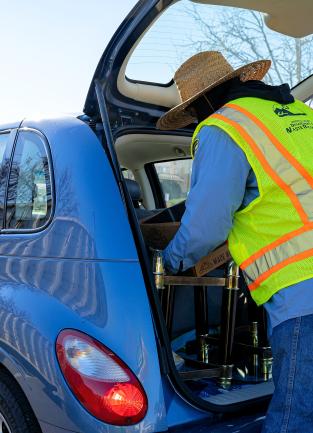$35 million Investment in Housing and Homeless Services
Wed, 11/01/2023 - 04:00
Riverside County Board of Supervisors unanimously voted to enter into a partnership with Inland Empire Health Plan (IEHP) and Molina Healthcare to invest $35 million in housing and homeless programming and services. The allocation comes from the Housing and Homeless Incentive Program through the California Advancing and Innovating Medi-Cal (CalAIM) program. CalAIM is a long-term California Department of Health Care Services (DHCS) initiative to transform and strengthen Medi-Cal, offering Californians a more equitable, coordinated, and person-centered approach to maximizing their health and life trajectory.
Health Plans can flow incentive funding to partners who are leading efforts on the ground. To that end, the Inland Empire Health Plan (IEHP) and Molina Healthcare of California (Molina) have partnered with the County of Riverside Department of Housing and Workforce Solutions (HWS) to provide significant investments in 10 IEHP investment activities and seven Molina investment activities that include housing, sheltering services, behavioral health services, provider capacity building and data activities.
The Riverside County Continuum of Care (CoC) Committee has reviewed and strongly supports the Investment Plan submitted by IEHP and Molina. The HWS Department serves as the CoC Lead Agency and Administrative Entity for Riverside County and works alongside over 200 public, private, non-profit, and faith-based organizations to coordinate responses to address homelessness across the region. These efforts include the implementation of a 5-Year Homeless Action Plan which represents the roadmap used by the County, partnering cities, and provider agencies.
“This is an historic investment by IEHP and Molina to address the housing instability and homelessness crisis we face in Riverside County. This public private partnership is exactly the type of action that needs to be taken to address these issues in a holistic and integrated approach. I applaud our two health plans for working with our Housing and Workforce Department to create a sound a strategic investment plan to make meaningful change,” said Second District Supervisor and IEHP Board Member Karen Spiegel.
“Housing is truly the cornerstone of health and well-being, making it imperative for IEHP to act in bold and innovative ways to support programs addressing homelessness and housing head-on,” said Dr. Takashi Wada, IEHP Chief Medical Officer. “Through this partnership and our collaboration, we aim to place optimal care and vibrant health in reach for those in our community today and for generations to come.”
“With approximately 50% of the nation’s unsheltered population residing in California, homelessness is a pressing issue requiring a collaborative effort to address,” said Abbie Totten, plan president of Molina Healthcare of California. “Molina works daily to improve the health and lives of our California communities and we’re proud of this initiative with Riverside County and IEHP to support local unsheltered individuals and families.”
The California Advancing and Innovating Medi-Cal (CalAIM) is a long-term California Department of Health Care Services (DHCS) initiative to transform and strengthen Medi-Cal, offering Californians a more equitable, coordinated, and person-centered approach to maximizing their health and life trajectory. This includes launching Enhanced Care Management (ECM) benefit and optional Community Supports (CS). DHCS has developed several incentive programs to support CalAIM implementation, one of which is the Housing and Homelessness Incentive Program (HHIP). HHIP is a voluntary incentive program that will allow health plans to earn incentive funds for making progress in addressing homelessness and housing insecurity and social determinants of health. Total Incentive Funds available are $1.288 billion one-time funds. Funding will be available through March 31, 2024. Funds flow from DHCS to Medi-Cal Managed Care Plans (MCPs) to reduce and prevent homelessness, and ensure MCPs develop the necessary capacity and partnerships to connect their members to needed housing services.
# # #





